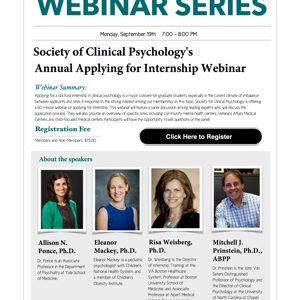The state of vaccine hesitance in the US and current strategies to improve vaccine confidence (With CE)
$40.00
Presenter: Dr. Robert Bednarczyk
Robert A. Bednarczyk, PhD, is an Associate Professor of Global Health and Epidemiology at the Emory University Rollins School of Public Health. An infectious disease epidemiologist by training, he has conducted studies to understand, characterize, and address vaccine hesitance incorporating principles from behavioral epidemiology, the psychology of decision-making, as well as traditional epidemiologic methods. He has published over 115 peer-reviewed manuscripts in journals including JAMA, New England Journal of Medicine, Pediatrics, Nature Human Behavior, Clinical Infectious Diseases, and Vaccine. Dr. Bednarczyk is recognized as an expert on understanding and addressing vaccine hesitance, and has been a frequent media interviewee related to COVID-19 vaccine hesitance over the course of the pandemic.
Overview:
This webinar content is based on research conducted by our team and our colleagues, utilizing techniques in infectious disease and behavioral epidemiology, incorporation of behavioral and psychological theories and concepts (e.g. Moral Foundations Theory, behavioral nudges, cognitive biases, application of heuristics, affective versus cognitive appeals) to understand vaccine hesitance. Our findings of the association between vaccine hesitance and these principles provide a novel framework for moving forward in our methods to address vaccine hesitance, particularly as we gain more understanding that simply addressing a perceived information deficit is not sufficient to improve vaccine uptake.
Learning Objectives:
- Describe the epidemiology of vaccine hesitance and vaccine uptake in the US___
- Explain the relationships between vaccine hesitance and vaccine-preventable disease outbreaks
- Apply principles related to the psychology of decision making to addressing vaccine hesitance
Description
Presenter: Dr. Robert Bednarczyk
Robert A. Bednarczyk, PhD, is an Associate Professor of Global Health and Epidemiology at the Emory University Rollins School of Public Health. An infectious disease epidemiologist by training, he has conducted studies to understand, characterize, and address vaccine hesitance incorporating principles from behavioral epidemiology, the psychology of decision-making, as well as traditional epidemiologic methods. He has published over 115 peer-reviewed manuscripts in journals including JAMA, New England Journal of Medicine, Pediatrics, Nature Human Behavior, Clinical Infectious Diseases, and Vaccine. Dr. Bednarczyk is recognized as an expert on understanding and addressing vaccine hesitance, and has been a frequent media interviewee related to COVID-19 vaccine hesitance over the course of the pandemic.
Overview:
This webinar content is based on research conducted by our team and our colleagues, utilizing techniques in infectious disease and behavioral epidemiology, incorporation of behavioral and psychological theories and concepts (e.g. Moral Foundations Theory, behavioral nudges, cognitive biases, application of heuristics, affective versus cognitive appeals) to understand vaccine hesitance. Our findings of the association between vaccine hesitance and these principles provide a novel framework for moving forward in our methods to address vaccine hesitance, particularly as we gain more understanding that simply addressing a perceived information deficit is not sufficient to improve vaccine uptake.
Learning Objectives:
- Describe the epidemiology of vaccine hesitance and vaccine uptake in the US___
- Explain the relationships between vaccine hesitance and vaccine-preventable disease outbreaks
- Apply principles related to the psychology of decision making to addressing vaccine hesitance






Reviews
There are no reviews yet.